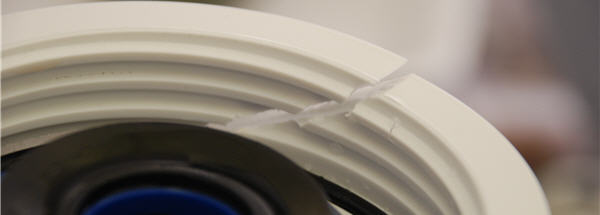Metallurgical (Materials) Analysis

A thorough and complete analysis of many investigative situations often calls for an intimate understanding of the behaviour of materials. Arcon’s engineers employ their extensive knowledge of the properties and behaviours of materials to establish causality links between the underlying materials and the overall product failure. Commonly analyzed materials include polymers, ceramics and glass.
Metals
Certain species of bacteria can flourish within the scum at the bottom of residential fuel oil tanks under specific conditions including the presence of water, and can use the steel walls as a source of nourishment. Unfortunately the bacteria can dissolve the walls grain by grain along the boundaries by excreting chlorine, creating pits which breach the tank wall, allowing oil to spill out into the environment.
Polymers
When polymer materials are deployed under certain environmental conditions, cracks will form at localized stress- increasing areas such as sharp corners. By assessing the crack morphology, it can be determined whether the polymer material may be insufficient for the desired function. An example showed that the chosen polymer had limited resistance to chlorine ions in both hot and cold water conditions. Overload conditions caused cracks to propagate through the threaded portion of the polymer canister of a water filtration system.
Ceramics/Glass
The fracture mechanics of glass deals with high forces combined with low strains that release a great amount of stored energy, such that the origin becomes almost impossible to determine directly in the aftermath. A remnant fragment of a plate glass window can be analyzed, edge by edge, to determine the crack propagation characteristics, to determine the origin & cause of its failure.














